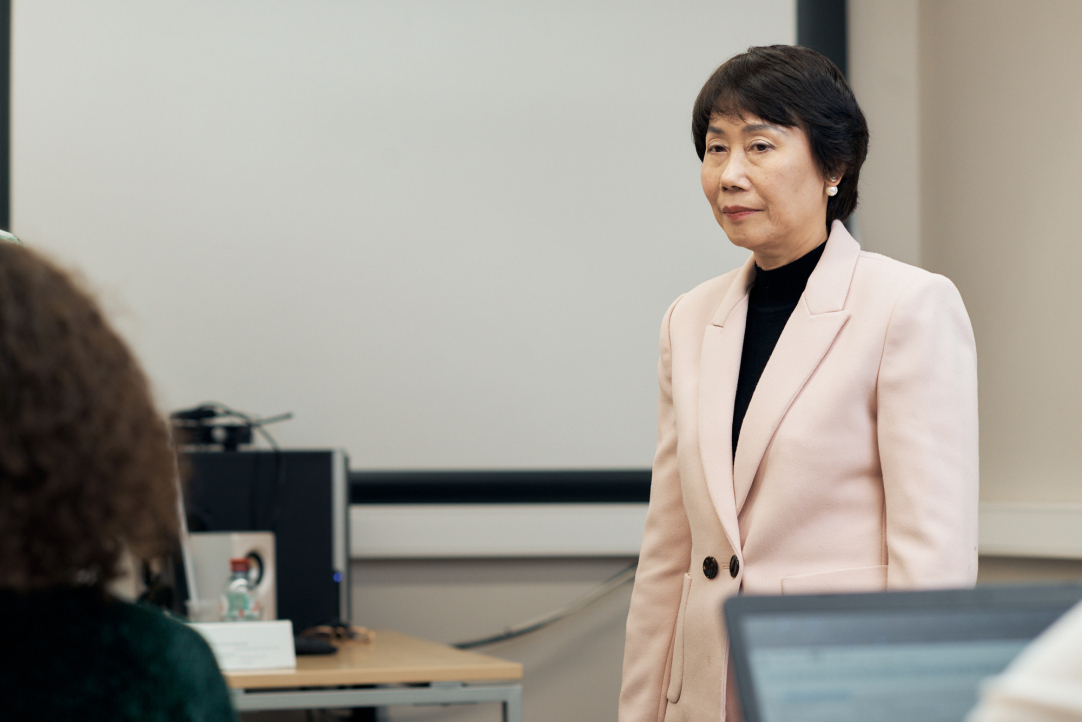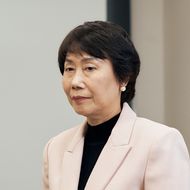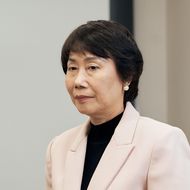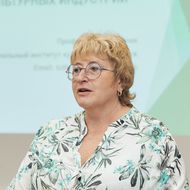HSE University-St Petersburg Hosts Open Lectures by Professor of Vietnam National Institute of Culture and Arts Studies
HSE University-St Petersburg has hosted open lectures by Tu Thi Loan, professor at the Vietnam National Institute of Culture and Arts Studies. The lectures were organised by the Department for Chinese, South and Southeast Asian Studies of the Institute of Asian and African Studies.

Students of HSE University-St Petersburg and SPbU, professors, and university guests attended two lectures—'Cultural Industries in Vietnam and the Policy of "Soft Power"' and 'Vietnamese Culture in the Context of Modern Cultural Exchanges and the Cultural Politics of Vietnam'. They also actively participated in a discussion on the significance of the 'soft power' policy in international relations, learnt firsthand about Vietnamese approaches to using cultural and creative industries, and heard about the achievements and problems faced on the way.

Tu Thi Loan
Professor, Vietnam National Institute of Culture and Arts Studies
'I chose the topic of "soft power" and cultural industries as these are extremely important issues for both Vietnam and the modern world in general. Due to its geopolitical position and other historical circumstances, Vietnam had to go through a lot of wars in the past. So we clearly understand what price one has to pay for "hard power" and what "soft power" means. I think that those painful lessons which Vietnam had to learn and pay such a high price for can be of universal significance.'
The professor told the attendees about Vietnamese culture, which has absorbed a wide variety of traditions and artistic creativity from the people living there and is an important factor in the development of industries. The country's culture is gradually becoming an internal development resource. For Vietnam, this is a very effective way to protect its cultural sovereignty in addition to being a form of national self-expression. In her lecture, Tu Thi Loan also talked about the problems of counterposing the cultural industries of Vietnam to the waves of 'soft power' from South Korea, China, the USA and other countries.
During the second lecture, the attendees found out how cultural exchanges developed in Vietnam. Tu Thi Loan highlighted that on the one hand, they bring together and mutually enrich world cultures, but on the other hand, they carry a threat of breaking down traditional forms and institutions of cultures, including the transformation of cultural heritage objects.

Tu Thi Loan
Professor, Vietnam National Institute of Culture and Arts Studies
'Like many experts in the world, I believe that Russia has a great culture, and its outstanding talents and cultural achievements should be admired by the whole world. Russia can successfully develop its cultural industries to promote "soft power", as well as increase national budget income and encourage creative talents, contributing to the revival of Russian culture and resisting the "cultural invasion" from the outside, at the same time bonding with peoples around the world via cultural bridges.'

Head of the Department for Chinese, South and Southeast Asian Studies at HSE University-St Petersburg
'International academic relations are an integral element of the contemporary educational process, and we are very happy that despite the existing restrictions, HSE University keeps on actively supporting this significant direction of its activities. We are very grateful to Professor Tu Thi Loan for coming such a long way from Hanoi to St Petersburg to tell us and our students about the importance of "soft power" policy in international relations, as well as Vietnamese approaches to using cultural and creative industries in the framework of such politics based on the example of Vietnam. I hope that the practice of organising open lectures by international speakers at HSE University will continue; and that in the future, we and our students will still have an opportunity to gain analytical information about the development of various phenomena of the contemporary world first-hand and support academic exchanges with colleagues from other countries.'

